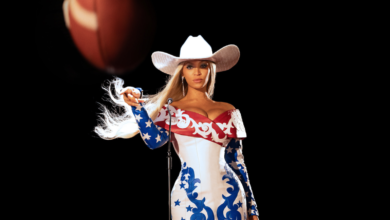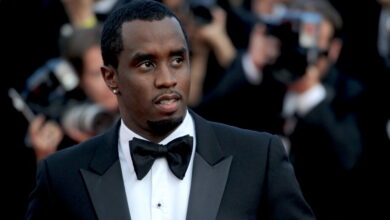China’s backlash against Little Mermaid exposes Hollywood bind

Hollywood has a China problem.
The world’s second-largest economy has become one of the biggest markets for big-budget Hollywood films, but a racially-charged backlash against Disney’s The Little Mermaid is just the latest example of the price film studios can pay if they offend Chinese sensibilities.
Chinese state media and netizens have condemned the casting of Halle Bailey, who is Black, as Princess Ariel – echoing some Americans who have expressed anger that the Atlanta-born actress does not resemble the light-skinned character of the 1989 animated film or the 1837 fairy tale by Hans Christian Andersen.
In an op-ed last month, The Global Times, an English-language Chinese tabloid known for its nationalistic coverage, accused Disney of turning “classic tales into ‘sacrificial lambs’ for political correctness” by casting non-white actors in classic tales.
“When the beautiful stories that have accompanied countless children’s childhoods become arenas for racial conflict, they lose their meaning and become devoid of romance and fantasy, replaced by arguments about skin colour,” said the tabloid, insisting that such casting controversies were not driven by racism but “lazy and irresponsible storytelling”.
The blowback – much of it overtly racist – has also played out among ordinary Chinese film-goers online.On social media platforms such as Sina Weibo, some users have criticised Bailey’s appearance and her Black facial features.
Other Chinese commentators online left more positive reviews, with a poster on the film site Mayoan saying that Bailey’s appearance made little difference to children and she represented Princess Ariel’s most essential character trait – a brave spirit – well.
While China does not have the same racial history or politics as the US, audiences are still sensitive to how race is portrayed in Hollywood films, said Chinese-born YouTuber Yao Zhang, who follows Chinese and Taiwanese news and culture from Canada.
Zhang compared the backlash to the public’s reaction to supermodel Lu Yan, whose small eyes and high cheekbones were deemed unattractive in China but gained her renown in the West – although some Chinese bloggers claimed Lu’s success was a Western ploy to make China look bad by elevating “ugly” women.
Amid the negative press, The Little Mermaid has performed poorly at the Chinese box office, earning just $3.6m in the 10 days after its May 26 release, according to Artisan Gateway, an international film advisory.Live-action remakes of Disney classics typically gross between $40m to $85m in China, according to the advisory.
Guardians of the Galaxy Vol 3 and Fast and Furious X, also released in May, have earned about $80m and $120m, respectively, since their release.
The Little Mermaid’s flop is just the latest example of how difficult it has become for Hollywood to navigate one of the world’s largest and most lucrative theatrical film markets, which once had an insatiable appetite for US films.
China is especially competitive as Chinese censors only accept a few dozen foreign films a year. Only 39 foreign films were released in 2023 as of May, including 18 Hollywood titles. Unlike in decades past, Hollywood must also compete with a thriving domestic film industry that produces its own blockbusters.
Studios also face the dilemma of accepting changes to meet the demands of Chinese censors or risk being blackballed from the market.
Sony famously changed the 2012 remake of Red Dawn in post-production to feature a North Korean, rather than Chinese, invasion of the US, costing the studio millions.
In 2016, a screenwriter for the Marvel action movie Doctor Strange suggested that the background of the character the Ancient One had been changed from Tibetan to European to avoid upsetting China.










